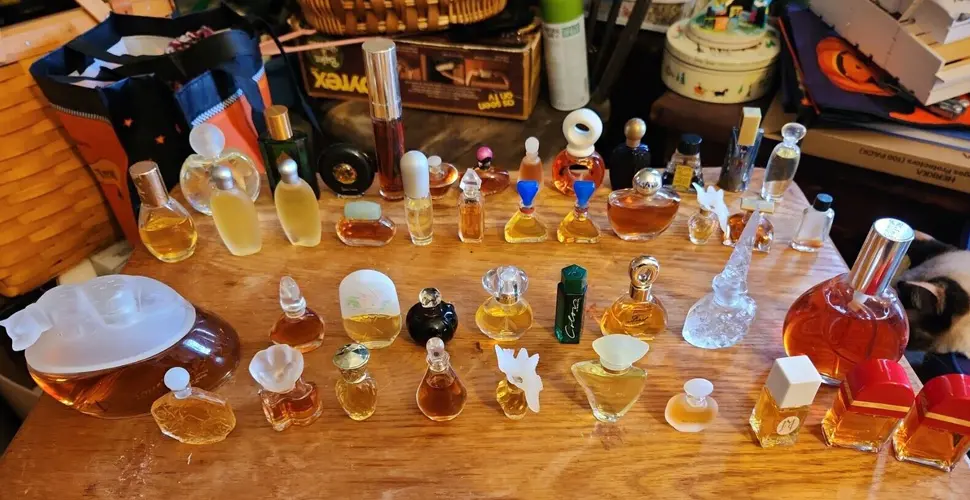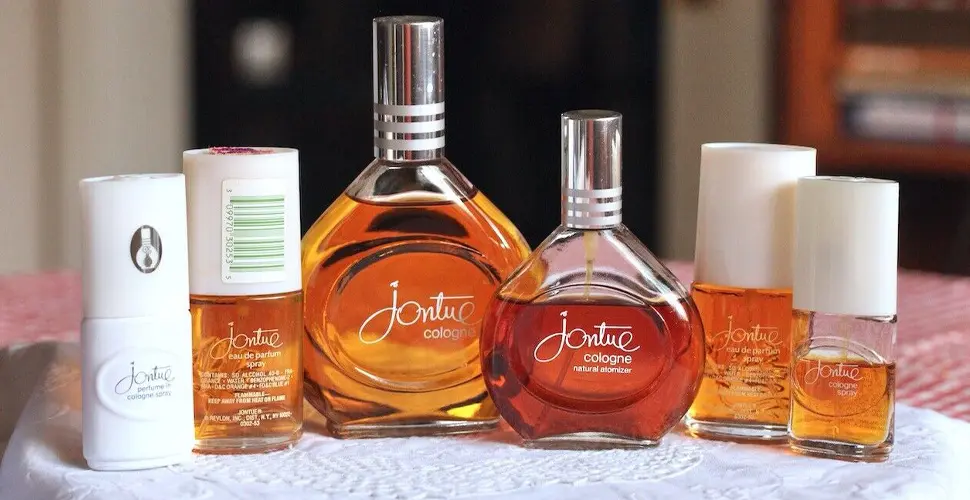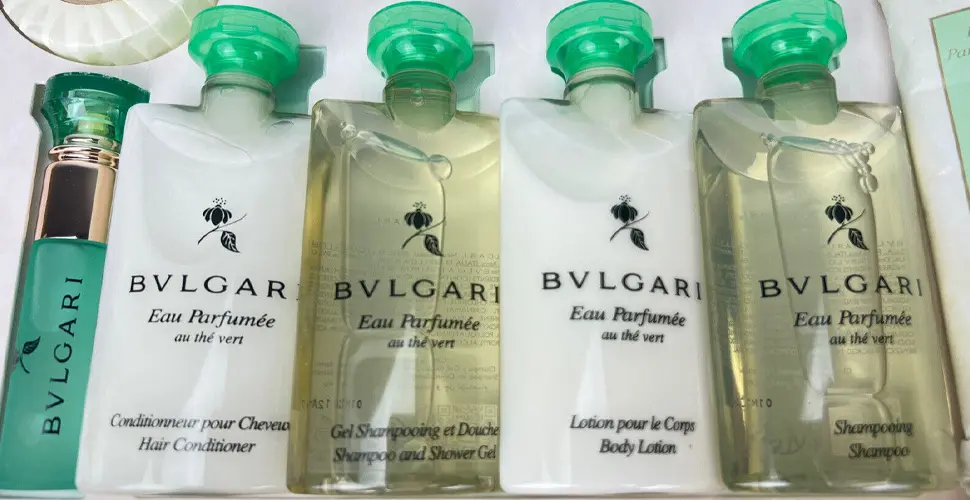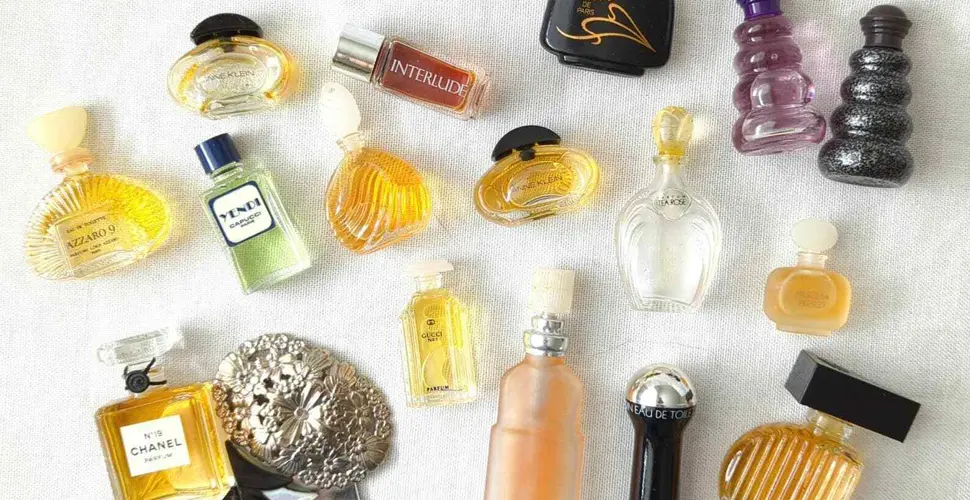A Brief History of Perfume: From Ancient Times to Modern Day
Deana Stallings
- 04 Jan 2023

A Brief History of Perfume: From Ancient Times to Modern Day
Introduction
The unmistakable scent of perfume has been captivating our senses since the dawn of time and in every corner of the world. “A drop of perfume always makes the heart beat a little faster.” – Elizabeth Taylor Today, we want to tell you the whole story of how perfumes came to be, so buckle up and let’s go on a journey through the aromatic history of this beloved scent!
What is the origin of the word “Perfume”? The word “perfume” is derived from the Latin “per fume” meaning “through smoke” due to the fragrant smoke used to produce the scent during ritualistic ceremonies.
Perfume wasn’t only used for rituals, however. As civilizations advanced, so did the wiles and methods for using perfume for personal pleasure. Ancient Egyptians are well-known for using fragrance for personal adornment and moisturize their skin with essential oils and counted the use of scent among their daily rituals. Cleopatra was one of the earliest known users of perfume, often mixing her own fragrances made from flowers, oils and spices to attract powerful admirers such as Julius Caesar and Marc Anthony.
The Middle East was also no stranger to fragrance. Arabia, being the first region to develop perfumery as we know it today, produced exquisite mixes of animal and plant extracts. As the Ancient Roman Empire spread its influence to different parts of the world, so did its secret recipes of perfumes. Arabia sent skilled perfumers at the request of Roman emperors to help create some of their finest fragrance blends.
The art of creating perfumes travelled to Europe with the influence of the scholars of the Middle East and soon the task of creating perfumes was put into the hands of the alchemists. For centuries alchemists would work in mysterious laboratories and unlock the secret to creating beautiful and distinctive fragrances from natural ingredients. The art of perfumery was born and its practice spread far and wide.
In the 17th century, the first synthetic chemical was used to capture the scent of flowers and create a more complex combination of fragrances. This marked the dawn of modern perfumery as we know it today. Now, perfumes contain hundreds of chemical combinations and are designed to be made to fit different personalities and occasions.
From Ancient Egyptian royalty to medieval chemists to modern-day perfumers, the making of perfume has been a fascinating journey that continues to fascinate and charm us today. So, the next time you spritz on a favorite fragrance, be sure to remember that you’re part of a long and aromatic history.
A Brief History of Perfume
Perfume is a mixture of fragrant essential oils or aroma compounds, fixatives, and solvents used to give the human body, animals, objects, and living spaces a pleasant scent. It is the art of diffusing scent and has been around for literally centuries, dating back to the ancient Egyptians who would use traditional fragrances for religious ceremonies and even for embalming.
Most people associate perfumes with female beauty and elegance and it is usually thought of as one of the most luxurious and special forms of personal adornment - it can bring out the personality, enhance beauty and even evoke powerful memories.
Cultural Significance: Perfume has always been associated with different cultures, whether it’s French perfume or Indian attar. Its cultural significance lies in its ability to reinforce the cultural identity of certain people or places. The exotic aroma of a certain scent may be unique to an area and evoke memories of a particular place and its people.
The use of perfume is also known to have a psychological effect on the user, calming some while invigorating others. It can also help to increase feelings of confidence and helps a person feel more attractive and well-groomed when they are wearing it.
Humor: Not only do perfumes enhance beauty and elicit strong memories, but they’re also great for those weird moments when you can’t remember whether you applied deodorant this morning or not. Spraying on a nice scent is a great backup plan!
Holistically, perfume is an art form that has been around for centuries and can greatly influence our mood, evoke positive memories and even help us to build our confidence. Whether you’re wearing it for yourself or gifting it as a special present, perfume is an incredibly versatile product and a great way to show someone you care.
Ancient Times
A spritz of scent is an integral part of any beauty routine, but the use of perfumes predate modern chemistry by thousands of years. Ancient civilizations like Egypt, Greece and Rome utilized base plants, along with time-honored methods of production, to create fragrances and perfumes as part of their everyday lives.
Egypt
Perfumes had a cultural, religious and medicinal meaning in Egypt, with plants like lily, frankincense, cinnamon and myrrh being popularly used to make perfumes. An impressive array of specialized formulas suggested that perfume production was an established science which had been practiced for centuries. Since Egyptian culture worshipped perfume-loving deities, the luxurious scents were used to honour pharaohs and deities, such as the beloved goddess Bastet. Also, because the Egyptians believed in the afterlife, perfumes were used in mass funerals to accompany the dead to the underworld.
Greece
Perfumes were important cultural elements as well in Ancient Greece - from the Olympics, to rituals, wedding celebrations and more. Cistus, camomile and jasmine were favourites at the time, and since everyday Greeks used goat fat and nutritious lard to make candles and hair products, animal fats were often used in to make scented oils. An interesting practice the Greeks used was adding petals and herbs to bathwater to create natural perfumes. Perfumes were also an important element in the mummification process honoring the dead.
Rome
When it comes to luxury of the ancient world, nothing quite beats the glamour of Ancient Rome. They took making perfumes to a whole new level, using oil of roses, bergamot, jasmine and other floral essences. Some of their perfumes were strong and overpowering, while others were delicate and light. Greek doctors even prescribed special perfumes to help protect citizens against some illnesses. It’s believed that perfume was an important part of many Roman ceremonies, including marriage celebrations and funerals, where spices and oils were used in honor of the dead.
Perfumes were an integral part of ancient culture, and their spiritual and medicinal properties were highly respected. From Egypt to Greece and Rome, the production of perfumes was a well-established and respected craft, even inspiring future methods of perfume production. Whether it was used to honor a deity, accompany the dead, or simply for luxury, ancient civilizations certainly pioneered perfumes with finesse and style!
The Middle Ages
Aromatic Ambience: Perfumes in Medieval Society
Perfumes have been an integral part of many cultures for centuries, and the Middle Ages were no exception. From a symbol of luxury for the privileged to a staple of religious and spiritual practice, fragrances had a multifaceted role in medieval society.
History of Perfume-Making
Perfume production was an art, and a science, in the Middle Ages. Over 3000 years ago, Egyptians harvested the sweet-smelling resin of trees to craft perfume. They shared their knowledge with Europeans, who created more complex fragrances through distilling plant and animal oils, blending them with alcohol, and aging them in wooden casks.
By the 1300s, Europe’s perfumers had perfected the art of making fragrances, using mixtures of fragrant herbs, oils, and even bizarre ingredients like whale vomit. Perfumes were sold in markets, door-to-door, and even at royal courts.
Cultural and Religious Significance
In the Middle Ages, wearing a fragrance made a statement. Fragrances, particularly rose and musk, were worn to represent wealth, social status, and even political power. Common people would craft their own perfumes, often including plant and animal parts found in their local area.
For the religious and spiritual, fragrances had a powerful symbol and role. Many scented oils were seen as gifts of the gods, and four were even said to bring enlightenment. Burning these incenses was believed to spread positive energies, aromatherapy before there was aromatherapy!
Modern Perfume-Making
Since then, our perfume-making technology has actually come full circle in some ways. Essential oils are still used, but the synthetic fragrances used for the lion’s share of perfumes on the market today were invented during the last two centuries.
But the cultural and religious importance of perfumery remains. In many places, incense burning is used as a means of honoring deities, thanks to the Middle Ages‘ lasting legacy. After all, when your senses are taken captive by a beautiful scent, it’s hard not to feel divine!
For many, a dab of perfume is still a part of daily life. Whether you’re looking to make a statement, honor the divine, or simply make the people around you a bit more pleasant, the time-honored tradition of perfumes lives on. Long may it reign!
The Renaissance
During the Renaissance period, perfumes were becoming increasingly popular. People were fascinated by fragrances, and were eager to explore new techniques for creating them. This renewed interest in perfumes even led to the development of entirely new materials and processes for their manufacture.
One of the most notable of these advances was the introduction of distillation. This method of perfume-making involves boiling various plants and herbs to extract the essential oils from them. These oils are then combined together to create unique scent combinations. Distillation allowed perfume makers to create rich and complex smells that reflected the tastes of the time. Moreover, this new technique helped to make perfumes much more affordable.
In addition to distillation, perfume makers during the Renaissance period also utilized a range of new materials to create more exotic aromas. Different kinds of oil, spices, resins, and ambergris were used to imbue fragrances with unique properties. Exotic balsams and rare herbs such as musk and olibanum became increasingly sought after, and their use in perfumes enabled creators to create fragrances that were both luxurious and distinctive.
On a cultural level, perfumes during the Renaissance were also imbued with great significance. They were often used to signify status or wealth, and became a mark of sophistication. People would wear perfumes to stand out from the crowd, and to demonstrate their sophistication. Furthermore, perfume concoctions were carefully chosen and tailored to suit each individual’s personality. As such, perfumes in this era weren’t just used to smell good, but were also a way for people to communicate their identities and preferences to others. Thus, perfume at this time was a reflection of a person’s character as well as a symbol of wealth and status.
The Renaissance period saw a great revival of interest in perfumes and the introduction of a whole range of new materials and techniques. This era also had a highly significant cultural significance, with perfumes being used to represent wealthy and sophisticated people, and also as a tool of self-expression. It’s clear that, during this period, perfumes weren’t just a tool of fashion - they were an art form in their own right!
The Modern Era
The evolution of perfumes since the 18th century has been nothing short of a creative wonder. To see how perfumes have come from the beginning with their original scents, production methods and materials has been fascinating. But to understand the cultural and commercial signficiance of perfumes in modern societies, you need to understand this evolution.
Back in 18th century, perfumes were made from plants and flowers in the most basic yet effective way possible. The plants were dissolved in alcohol and water as a base, and then essential oils were added. The purpose of this was to preserve the scents for longer. This method of perfume production was a classic of its time and was the main form of creating perfumes.
As the science of chemistry grew, so did the production of perfume. This began the period of great production advancements and the focus became on the construction of the scent. It was during the 19th-century that the industry changed and the carborn chain came into play. The production of synthetic atoms became much easier and more effective and this changed the face of perfume production.
Chemists used a variety of plants and synthetic ingredients too to create a range of different smells. This enabled perfumes to become much more consistent and easier to distribute to a mass market. Additionally, in terms of production, synthetic scents could be produced much cheaper than their natural counterparts could.
Now, the perfumes of today are a complete opposite of the 18th century fragrances. Today, modern perfumes have become very complex, with a variety of different ingredients and methods used to create them. Natural essential oils are blended with synthetics to create a hybrid that’s much crisper, accurate and diverse.
At the same time, the cultural significance of perfumes has grown drastically in modern times. It has become a way of expressing ourselves and a representation of our hormones. The commercial significance of perfumes in today’s world has also allowed it to become a very lucrative industry. Perfumes are now a must-have item, regardless of gender and age.
The evolution of perfumes over the centuries has been nothing short of amazing. From the 18th-century methods of production right up to the modern scents of today, it’s an industry that’s come one hell of a long way. And while perfumes can now be synthetic and more varied than ever, they remain an important part of our modern culture, expressing who we are and bringing pleasure to those who wear them.
Conclusion
In conclusion, perfumes are an integral part of our personal, cultural and communal history. People have crafted and used aromatic compounds for thousands of years in religious, medicinal and personal care products. Starting from ancient times, perfumes have played an important role in humans’ lives, with recipes and processes that are still used today, albeit in modernized form.
The art of perfumery is truly remarkable, as is its complex and colorful history. The next time you spritz on a scent, take a moment to appreciate the connection between past and present and the importance of knowing the roots behind your favorite fragrance.
Ready to rediscover your signature scent? Go explore the world of perfumes and find the perfect aroma or set of aromas that make you feel alive, beautiful, and make a lasting impression! Remember perfume is a personal statement of your style and should be celebrated!


